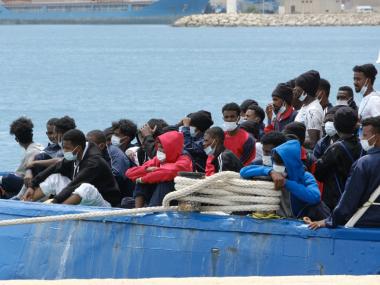One of the emerging issues on the continent is the increasing numbers of females who are involved in international migration especially those who migrate for domestic work. Female migration has consequences in places of origin, destination and transit. There is a need to bring policy attention to the specific challenges that female migrants face, to ensure the effective enforcement of commitments that promote their rights.
Migrant women often find themselves in low-paying, informal, and precarious roles, exposing them to economic exploitation and rights violations. Addressing these vulnerabilities is not only vital for the wellness of the migrants but also for the socioeconomic development of their home communities upon their return. Economic empowerment is critical and is a requirement to lessen vulnerability of women and girls to migration and displacement related exploitation, abuse and other human rights related violations. Economic empowerment of women not only leads to social transformation but substantive gender equality and meaningful changes to women and girls’ lives. In addition, economic empowerment enables investments in education and other productive sectors that could have a ripple effect of retaining women from migrating in search of livelihood and for jobs that are risky, insecure such as domestic work. Targeted interventions to support economic activities and aspirations are necessary.
The the United Nations Economic Commission for Africa (ECA) through its Gender, Poverty and Social Policy Division (GPSPD) has undertaken assessments in Ethiopia, Kenya and Uganda to outline strategies to promote economic empowerment of returnee migrant women and facilitate their successful reintegration into local economies.
In November 2024, a workshop held in Kampala provided a platform for validating findings from an assessment on the economic situation of returnee migrants from the Gulf Cooperation Council (GCC) in Uganda. This workshop not only outlined strategies for promoting the economic empowerment of returnee migrant women but also fostered essential discussions among stakeholders regarding effective reintegration into local economies. Participants recognized the need for a structured approach to ensure ongoing support and sustainability of project outcomes.
As a result, the Government of Uganda under the leadership of the Ministry of Gender, Labour and Social Development is organizing a dedicated working group meeting in Kampala from 19-21 May 2025. This meeting will offer strategic guidance for implementing key activities, ensuring that initiatives to empower returnee migrant women are effectively coordinated and sustained over the long term. By fostering collaboration among various stakeholders, the working group will play a crucial role in advancing the project’s objectives and significantly enhancing the lives of returnee migrant women.
The specific objectives include to:
- Provide strategic guidance and oversight for the economic empowerment of returnee migrants from the GCC under the Joint AUC/ECA migration project.
- Ensure the sustainability of the project's initiatives related to Result Area 1 (RA1) to facilitate continuity and lasting impact.
- Undertake policy advocacy efforts in promoting migration and reintegration policies.
- Streamline and promote collaboration among stakeholders.
Documents
